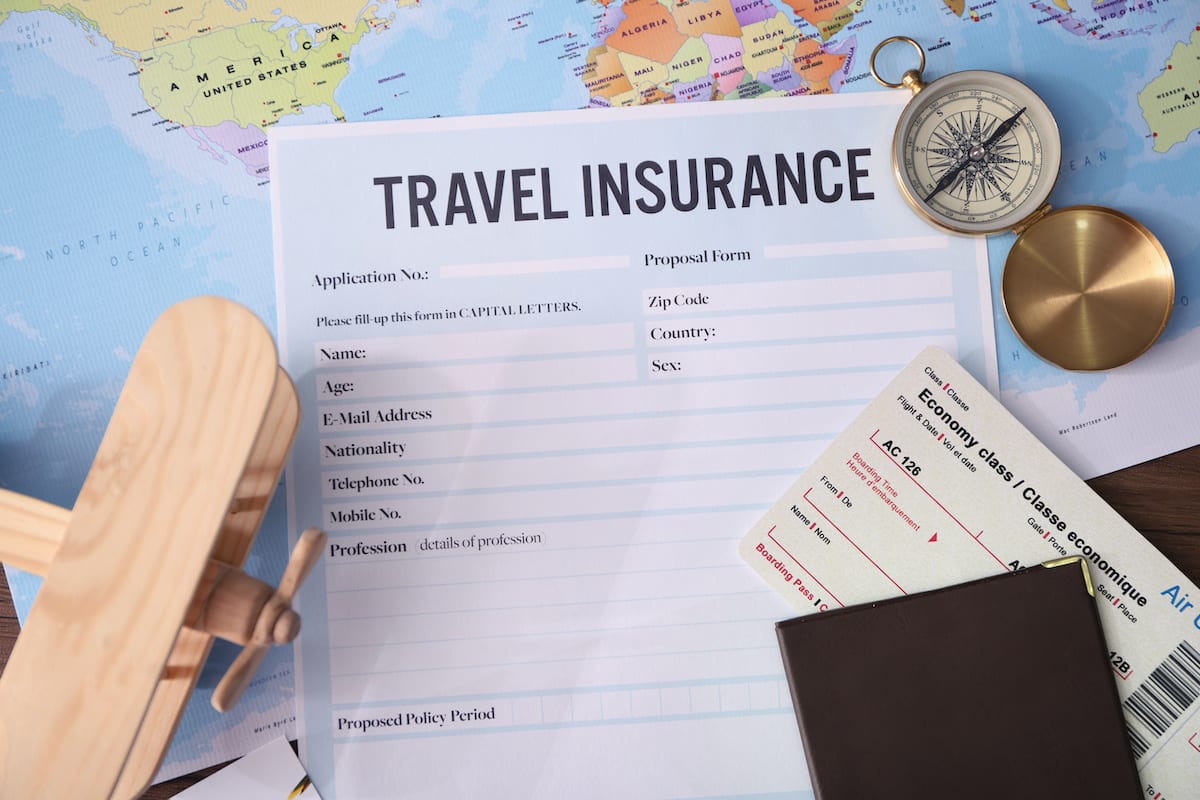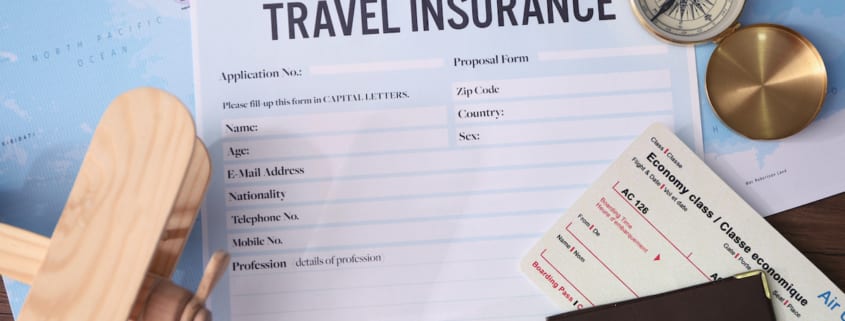Travel Insurance for Seniors

Travel insurance for seniors can protect your health and finances while you’re traveling out of the country. It’s especially important for American seniors because Medicare will not cover health expenses when you’re outside the US.
Remember, anyone can fall, be a victim of theft or identity theft, or experience a weather catastrophe while out of the country. Your fitness level or health have nothing to do with it! So read on to learn about travel insurance for seniors: what it is, how to buy it, and sources of travel insurance you might already have.
What is Travel Insurance?
Travel insurance is a policy designed to protect you and your assets while you travel. It can apply to domestic travel, but it’s most often purchased for trips abroad. It blends certain aspects of health insurance, life insurance and liability coverage to protect the insured while they travel out of the US.
- Travel insurance for seniors is available through travel agents, companies selling travel packages / cruises, and independent insurers.
Coverages can include:
- Damage to or loss of your personal property
- Airline or cruise ticket cancellations
- Damage to or loss of rented equipment (like rental cars, rented bikes and scooters)
- Accidental death coverage & flight accident coverage
- Ransom coverage – a key coverage for trips to nations with high abduction rates
- And medical expense coverage, which is vital for seniors who have Medicare
Let’s take a closer look at the medical expense coverage first. That is the portion of travel insurance most vital for seniors.
Medical Expense Coverage When Traveling Abroad
The primary types of medical travel insurance coverages are short-term medical and major medical. Your choice between these coverages depends on the length of your trip.
Understanding Short-Term Medical & Major Medical Coverage
Short-term medical coverage will cover a traveler for a shorter period. That time ranges from five days to a year. Major medical is for people planning a longer trip, ranging from six months to a year or longer.
If you’re heading out on a cruise to Mexico, or even spending a month in Paris, short-term medical coverage is appropriate. But if you’ll be spending ten months deep in the African jungles of the Democratic Republic of Congo, on a mission, you are better off buying major medical coverage.
Either way, the medical coverage portion of your senior travel insurance will help with:
- Unexpected medical expenses
- Ambulance rides
- Locating doctors, healthcare providers and hospital facilities
- And may even help you find a translator
Depending on the policy, it might also cover airlift to distant hospital, extended stays in foreign hospitals and medical evacuation during a catastrophe. Imagine yourself traveling to Cuba during hurricane season, for instance. The ability to be evacuated to Florida prior to a major storm for medical reasons could be a real lifesaver!
The US government urges all Americans, not only seniors, to talk to their health insurance providers before travelling overseas. This will help you identify any gaps in coverage that might crop up.
Your Group Health Insurance Policy Might Cover Emergencies in Canada, but Not Mexico
Some older adults are enrolled in a group health insurance policy through work or through their spouse’s job. Many US health insurance policies will cover emergency treatments in Canada, but not Mexico or Cuba. So be sure to contact your insurer before crossing the border.
- Never assume that you are covered in Country A just because you were covered in Country B once before!
Now that we’ve addressed the healthcare portion of travel insurance for seniors, let’s think about another key coverage: accidental death benefits and flight accidents.
Travel Insurance for Seniors Should Include Flight Accident & Accidental Death Coverage
Statista.com says there were 137 fatalities related to commercial flights in 2020. But that was a pandemic year. In an ordinary year, the number ranges anywhere from 59 (in 2017) to 905 (in 2006). The point we’re making is that accidents do happen, both in the air and on the runway.
When an accident results in death, disability or serious injury to the traveler, the flight accident / accidental death coverage will pay a lump cash sum to a predetermined beneficiary. There are a few exceptions, such as an in-flight drug overdose, for example.
If you already have life insurance policies in place, this coverage might not seem important. But if you lay awake at night wondering what could happen to your loved ones if you pass away while traveling, this coverage is essential.
Things to Consider Before Buying Travel Insurance for Seniors
Before you purchase travel insurance, it’s a good idea to take inventory of the coverages you already have. Contact your health insurance provider if it’s not Medicare to see what they cover when traveling and review your life insurance documents. Make sure your life insurance beneficiaries’ contact information is up to date before you leave.
Pro Tip: A helpful life insurance endorsement for seniors who travel is known as “double indemnity” or “accidental death.” This coverage increases the death benefit paid to you beneficiary a lot, for only a slight increase in premium.
- Also, know that some credit cards offer special insurance for travelers.
- If you have a credit card marketed towards travelers specifically, you might already have some insurance for your trip.
- Contact your credit card company to learn the details.
Tally up all the coverages you have before buying travel insurance. That way, you will not spend more for coverages you don’t need.
Finally, let’s think about the costs associated with travel insurance for seniors.
How Much Should Travel Insurance for Seniors Cost?
In general, your price for travel insurance should be somewhere between 4% and 10% of your overall travel expenses.
If you are spending $20,000 to visit Ireland for a month, seniors should expect to pay another $800 to $2,000 for travel insurance, depending on the insurer you work with and the coverages you select.
Remember, no law says seniors need travel insurance. But it’s a great idea for most older adults, and it’s crucial for seniors on Medicare.

 EINSURANCE
EINSURANCE EINSURANCE
EINSURANCE EINSURANCE
EINSURANCE